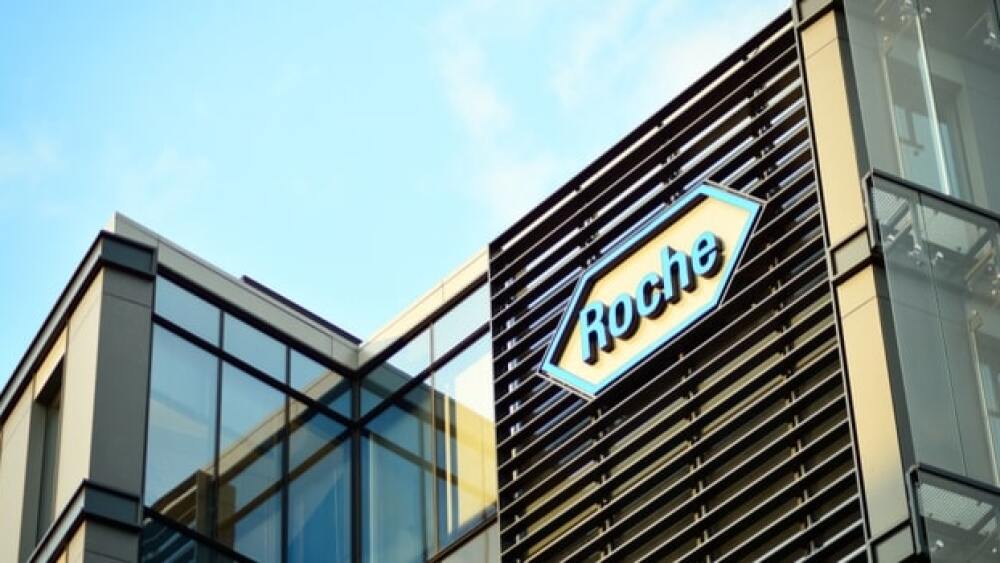Roche and Atea Pharmaceuticals are partnering to develop, manufacture and distribute AT-527, Atea’s experimental antiviral drug against COVID-19.
Grand Warszawski/Shutterstock
Roche and Atea Pharmaceuticals are partnering to develop, manufacture and distribute AT-527, Atea’s experimental antiviral drug against COVID-19. They expect to launch a Phase III trial of the drug in the first quarter of 2021.
AT-527 is a potential rival to Gilead Sciences’ remdesivir, currently the only antiviral approved to treat COVID-19. AT-527 blocks viral RNA polymerase that is needed for viral replication, and has an added advantage of being an oral drug. The initial Phase III will evaluate the drug in patients outside of the hospital setting. The companies also plan to develop it for post-exposure prophylaxis. It is classified as a direct acting antiviral (DAA).
The companies indicate that the manufacturing process of small-molecule therapies such as AT-527 can handle large quantities. If the trials are successful, the drug could potentially treat COVID-19 patients early and decrease disease progression.
“The ongoing complexities of COVID-19 require multiple lines of defense,” said Bill Anderson, Roche Pharmaceuticals’ chief executive officer. “By joining forces with Atea, we hope to offer an additional treatment option for hospitalized and non-hospitalized COVID-19 patients, and to ease the burden on hospitals during a global pandemic. In jointly developing and manufacturing AT-527 at scale, we seek to make this treatment option available to as many people around the world as we possibly can.”
Roche is paying Atea an upfront payment of $350 million. Atea will be eligible for future milestone payments as well as royalties.
The drug was developed using Atea’s purine nucleotide prodrug platform. It is currently in a global Phase II trial for hospitalized patients with moderate COVID-19.
“Roche shares our passion for delivering innovative new medicines to address great unmet medical needs,” said Jean-Pierre Sommadossi, Atea’s founder and chief executive officer. “The COVID-19 pandemic has highlighted the urgent need for a novel, oral antiviral to treat this highly infectious and often deadly virus. This collaboration with Roche enhances Atea’s efforts and underscores the potential for AT-527 to effectively address the COVID-19 crisis on a global scale. AT-527 is expected to be ideally suited to combat COVID-19 as it inhibits viral replication by interfering with viral RNA polymerase, a key component in the replication machinery of RNA viruses.”
On May 20, Atea, which is headquartered in Boston, Massachusetts, announced that the U.S. Food and Drug Administration (FDA) had given the go-ahead for the Phase II study for hospitalized adults with moderate COVID-19, with one or more risk factors for poor outcomes.
The same day, Atea announced it has closed a Series D financing worth $215 million. The financing was led by Bain Capital Life Sciences and included new investors RA Capital Management, Perceptive Advisors, Rock Springs Capital, Adage Capital Management, Redmile Group, Omega Funds, and funds and accounts managed by T. Rowe Price Associates. Existing Atea investors included Morningside Ventures, Cormorant Asset Management, Ally Bridge Group, and Sectoral Asset Management.
At the time, Sommadossi said, “We are delighted to have the strong support of this group of blue-chip healthcare investors. Atea’s portfolio is focused on developing novel, best-in-class, potent DAA’s and we have shifted all of our immediate resources and our team’s deep expertise in virology and pharmacology to help address the unmet needs in the fight against the COVID-19 pandemic. An oral treatment for COVID-19 patients should prevent progression of the disease and may help lessen the burden on critical inpatient resources. Atea is moving rapidly, in concert with regulatory authorities, to determine if our oral DAA is a safe and effective therapeutic against COVID-19.”





